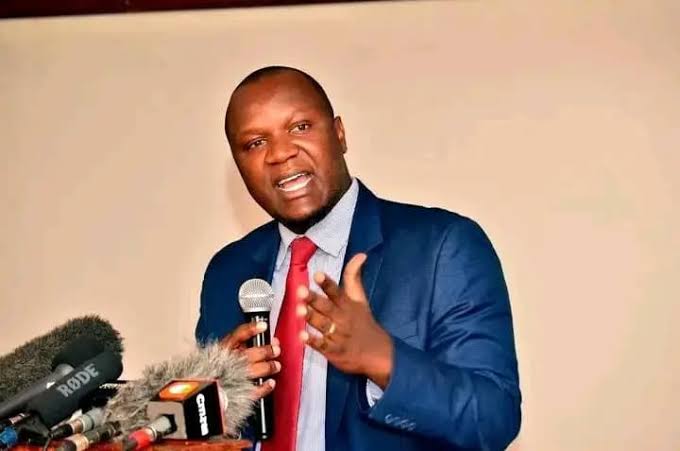Safina Party Deputy Leader Willis Otieno has issued a strong criticism of the government, accusing it of failing to uphold the sanctity of human life through extrajudicial killings, corruption, and negligence.
In a statement shared on his X account on Saturday, August 16, 2025, Otieno reminded the country that every citizen deserves dignity and protection regardless of social or political standing.
He said that human life cannot be treated as a disposable figure in the pursuit of wealth or political power.
His remarks come at a time when many Kenyans continue to raise concerns over rising insecurity, police brutality, and the government’s failure to deal with economic hardships.
Otieno stressed that the sanctity of human life is one of the oldest and most important moral principles. He explained that this principle is not tied to wealth, religion, race, gender, or social standing but is simply about recognizing the inherent value of every human being.
According to him, governments that reduce people to statistics for the sake of politics or profit undermine this universal truth.
He linked extrajudicial killings, torture, and systemic oppression to leaders who fail to respect the dignity of the people they claim to serve. His message was clear that life must not only be protected from unlawful killings but also supported through systems that promote dignity and better living conditions.
In his statement, Otieno raised the issue of systemic injustices, pointing to hunger, poor healthcare, and rampant corruption as evidence of the government’s negligence.
He asked how it is possible that Kenyans still suffer hunger in a country blessed with abundant resources and fertile land.
He also questioned why preventable deaths continue to occur simply because hospitals lack basic facilities or because funds meant for health services are misused by corrupt officials.
For him, these failures represent a deeper disregard for life, since life is not only lost through violence but also through neglect and exploitation.
Otieno argued that protecting life goes beyond the absence of killings. He emphasized the need for a broader societal commitment to creating conditions where people can live with dignity, justice, and compassion.
He said that governments and leaders have a duty to ensure that systems of governance support human flourishing rather than oppression.
He described the sanctity of life as a challenge to power, reminding authorities that they cannot sacrifice people’s well-being in the name of politics or profit.His statement calls for the government to take responsibility in addressing corruption, strengthening healthcare, fighting poverty, and ending extrajudicial killings.
In his words, the sanctity of life demands justice, compassion, and respect, and without these, the state fails its most basic duty to its citizens.





















Add Comment